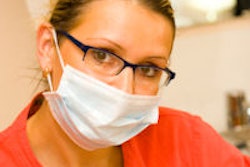A new oral drug is showing promise for treating oral and genital ulcers in people with Behçet's syndrome, according to research presented this week at the American College of Rheumatology (ACR) meeting in San Diego.
The drug apremilast, developed by the biopharmaceutical company Celgene, contains small molecules that modulate several inflammatory pathways and is pending approval by the U.S. Food and Drug Administration, according to an ACR press release.
Behçet's syndrome is a type of vasculitis that causes inflammation in the blood vessels throughout the body. Among other symptoms, the main symptoms of Behçet's are painful ulcers in the mouth and genital areas. Some 5,000 to 15,000 Americans suffer from the disease.
A team of international researchers found that apremilast is both safe and effective in treating these ulcers, according to the ACR.
In a multisite, randomized, double-blind phase II study, 111 people with Behçet's were randomly assigned to take either 30 mg of apremilast or a placebo twice a day for 12 weeks. After the first 12 weeks, all patients were treated with apremilast for an additional 12 weeks, and all patients were observed at a follow-up appointment 28 days after the last dose of the drug.
The researchers noted the number of oral and genital ulcers, pain of oral ulcers, the effectiveness of the treatment over time, each participant's disease activity, changes in health, and negative reactions.
Of the 111 participants, 95 completed the study. At 12 weeks, the average number of oral ulcers among 50 participants on apremilast was 0.5, compared with 2.1 in the 45 participants taking placebo. Notably, the beneficial effect of apremilast began within two weeks of starting the treatment, and these benefits continued as long as the participants were receiving the drug. But, the beneficial effect disappeared shortly after apemilast was stopped at 24 weeks.
Pain was also noted as being significantly lower in those on apremilast; and at 12 weeks, significantly more participants on the treatment were completely free of oral ulcers (71% treatment versus 29% placebo).



















